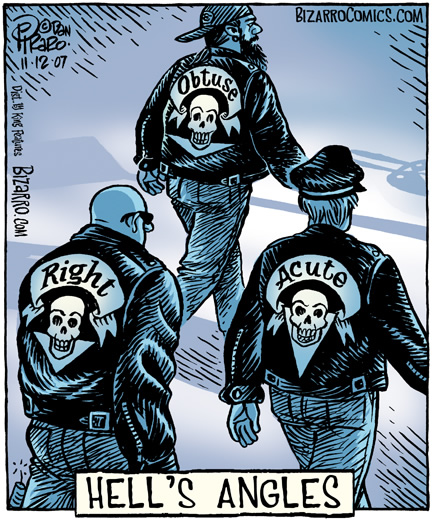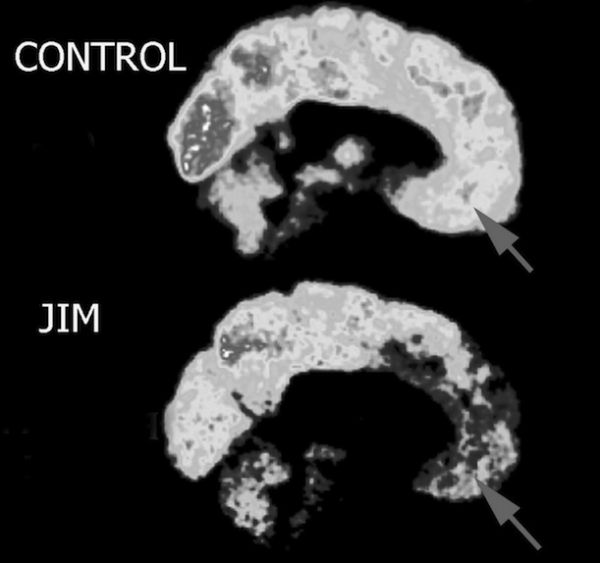Cocaine bust derails fledgling repugican congressman
by Michael J. Mishak

From the outset,
Trey Radel — a brash and digitally savvy darling of the wingnuts — was determined to make a name for himself. And so he has.
Just 10 months after being sworn in as a member of Congress, the rookie repugican
— who supported drug testing for food stamp recipients and championed
cuts in sheep-farm subsidies, of all things — pleaded guilty to cocaine
possession, took a leave of absence from politics and checked into a
Naples rehabilitation center. It was his purchase of 3.5 grams of
cocaine from an undercover officer in Washington's Dupont Circle
neighborhood last month that caused it all to unravel.
In a flash,
an ambitious lawmaker known to few outside southwest Florida became
America's "Cocaine Congressman," the first sitting member of Congress to
be charged with a drug offense in more than three decades.
"I
hope, like family, southwest Florida can forgive me for this. I've let
them down," Radel, 37, said in an emotional late-night press conference
Wednesday that marked an embarrassing retreat from public view. "But I
do believe in faith, forgiveness and redemption."
The unseemly
distinction of a drug arrest has derailed a promising political career
and divided this quiet stretch of golf courses and retirement
communities with the force of a hurricane. The largest daily newspapers
and a growing number of repugican leaders in the district, which
includes the Gulf Coast communities of Fort Myers and Naples, are
demanding his resignation. Potential challengers are openly weighing
primary bids. And late-night talk show hosts are once again focused on
Florida.
"I can't wait for the School House Rock on how a bill becomes a straw," cracked Jon Stewart on "The Daily Show."
Whether
Radel remains a politician or a punch line is an open question. His
office hasn't answered questions since his
Wednesday news conference.
On Thursday in downtown Fort Myers, his
name elicited rolling eyes and hearty chuckles. Asked about Radel,
several voters responded with one word: "Cocaine."
"If he were a coke-head kid working at McDonald's, he'd be out of a job," said Richard Bruehl, a retired general contractor.
Others were more supportive.
"We
thought he was a really great guy to represent us," said Carol Hess, a
retired business owner. "We just hope he gets the rehab he needs and
comes back and continues for us."
The lawmaker comes from a family
that ran a funeral parlor on Cincinnati's heavily catholic and wingnut west side, where he helped run ceremonies and drove the
hearse. This week he spoke about his mother's struggles with alcoholism
and later her sudden death at his wedding; she choked on a piece of
food.
After high school, he seemed to crave life in the public
eye. He moved to Chicago to attend Loyola University, where he studied
broadcast journalism and minored in Italian. He worked his way through
college by bartending and briefly took classes at The Second City, the
improvisational comedy outfit that trained John Belushi and Steve
Carell.
He studied abroad and backpacked through Europe. After
graduation, he traversed southern Mexico and parts of Central America,
and became fluent in Spanish. Later, he would tell the Washington
newspaper Roll Call that his favorite vacation spot outside Florida was
Cartagena, Colombia, an expensive coastal city in a country known for
cocaine trafficking.
"I had a lust for life, to see the world, learn the different cultures," he told The News-Press of Fort Myers last year.
When
he returned to the U.S., he took a series of jobs in television news
before settling in southwest Florida, where he spent years as a reporter
and later anchor for CBS affiliate WINK. He left the station to start a
media-relations firm and began hosting an early-morning conservative
talk-radio show.
Radel says he has struggled with drug and alcohol
abuse "off and on for years." Mike Adams, Radel's first producer on the
"Daybreak" morning show, said the two would often talk about cocaine
and Radel's backpacking trips through Colombia.
"I would mention,
'How was the stuff?'" said Adams, who acknowledged his own struggles
with addiction. "And he would say, 'Oh my god, it was phenomenal.
Nothing like you get here.'"
By then, Radel was fully ensconced in
the tea party movement, emceeing rallies and befriending Republican
politicians, including the district's congressman, Connie Mack IV. When
Mack called him to say he would be leaving the House and running for
U.S. Senate, Radel launched his first political campaign.
He was
embroiled in a bruising, six-way repugican primary, openly targeting opponents
on the Internet and facing criticism for his firm's ownership of
explicitly named websites. But he was backed by the local tea party
movement and repugican luminaries, including Mack and Sen. Marco Rubio,
and clinched the repugican cabal nomination. He cruised to victory in November.
Rubio's
office did not respond to a request for comment. Mack issued a
statement Wednesday: "I certainly hope Trey gets the help he needs. Time
and his own actions will determine whether the people are willing to
give him a second chance."
In the House, Radel aligned himself
with the tea party caucus, supporting wingnut measures, including
one to allow states to drug-test recipients of food stamps.
One
signature piece of legislation was an amendment to slash federal funds
for the National Sheep Industry Improvement Center, which gives grants
to sheep researchers, shearers in training and sheep-rancher
associations. The amendment won enthusiastic support, but the
legislation to which it was attached died.
His embrace of social
media made him a standout in Congress. His Twitter feed is filled with
short video clips, jokes and running commentary on everything from
"Obamacare" to SkyMall, the inflight shopping catalog. A self-described
"Hip Hop wingnut," he reviewed a Jay-Z album via Twitter and wrote a
column for Buzzfeed about the power of rap. (He dubbed Public Enemy's
"Fight the Power" a wingnut anthem "because I believe when
government expands it becomes a political tool meant to oppress.")
"This
is where repugicans need to step up to the plate," he told the Naples
Daily News. "We need to get with the times, and be able to share a
message cutting across generational, ethnic and cultural lines."
Radel
was backed by district, county and state repugican cabal officials. He built a
reputation as an accessible congressman, devoted to town halls and
public events.
Then, on Oct. 29, Radel attempted to buy $250 worth
of cocaine from an undercover police officer in a Washington, D.C.,
neighborhood.
According to court documents, federal agents
confronted the congressman and he invited them to his apartment, where
he turned over a vial of the drug. A DEA official who spoke on the
condition of anonymity because he was not authorized to release details
of the case in his own name said Radel was identified to authorities as a
cocaine buyer by his suspected dealer. Court documents said the
lawmaker had purchased the drug on several previous occasions.
For
the next three weeks, Radel didn't skip a beat. He held a re-election
fundraiser at a Naples country club, continued to cast votes and bashed
"Obamacare" on Twitter. He did not tell House leaders about the bust
until Tuesday, when reporters broke the news about the case.
On Wednesday, he pleaded guilty to a misdemeanor drug charge and was sentenced to a year's probation.
Back
home, repugicans clogged phone lines of the morning show Radel used to
host. Many called for his resignation, including Mike Scott, the
popular Lee County sheriff. Others argued for a second chance. All were
disappointed.
"We thought we had an up-and-coming star in the party," said Terry Miller, chairman of the Lee County repugican cabal.
Some
of Radel's former challengers are considering primary bids, including
Chauncey Goss, son of former CIA director and Rep. Porter Goss, and
Paige Kreegel, a doctor and former four-term state representative.
"This
type of event was not unexpected, but I don't think anybody predicted
he'd burn himself up in 10 months," Kreegel said. "It's embarrassing and
somewhat insulting for a self-professed alcoholic and drug addict to
pretend that he can effectively represent southwest Florida in the U.S.
Congress."
For his part, Radel, standing before a bank of TV
cameras in a cramped room in his district office Wednesday, apologized
and said in a shaky voice that it was only a matter of time before his
problems caught up with him.
"I knew that this day would come," he said.





















